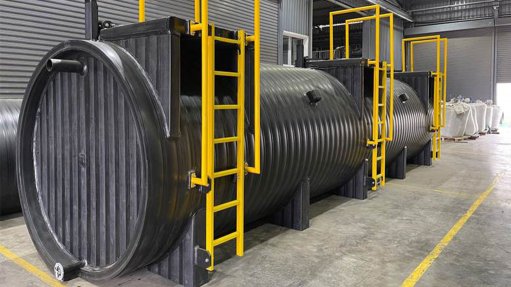
SANITATION SUCCESS In order for sanitation works of this magnitude Megapipe suggests the projects use its Weholite HDPE technology
The Kenyan government’s plan to construct an additional 10 000 classrooms to accommodate an expected surge in student numbers once learners’ transition from primary to junior secondary schools under the Competency-Based Curriculum is welcome and necessary.
However, the transition will require among other things a corresponding increase in teachers, equipment, meals, transport services and other infrastructure.
A fundamental part of the critical infrastructure, necessary to provide students with a conducive learning environment, is access to adequate water, sanitation, and hygiene (WASH) – an issue that rarely gets the publicity it deserves.
The Kenya Environmental Sanitation and Hygiene Strategic Framework 2016-2020’s definition of a school with acceptable WASH facilities is one that has adequate access to safe drinking water, sanitary toilets, and urinals to the correct ratio/proportion of pupils and age.
It also speaks of adequate hand-washing facilities, properly maintained compounds, well-ventilated classrooms and other living facilities including kitchen and dining facilities.
These WASH facilities make learning easier and play a key role in improving productivity by reducing incidences of communicable diseases including diarrhea and typhoid that often result in missed school days.
Schools should also be comfortable, as a great part of a child’s life is spent in a learning environment.
Various Ministries that have been given the task of putting up these classrooms should also keep in mind the different needs of learners found in heavily built-up urban areas compared to learning institutions that are in remote areas, and such factors present a set of engineering challenges.
Tackling such challenges is important because one of the main reasons that implementing large infrastructure projects becomes a challenge, both locally and globally, is owing to the disruption to communities that they cause.
Kenya is awash with examples of hostilities that arise every time a new road, sewer or transmission line is being constructed.
Luckily, the government has made great strides in technology that can solve these challenges in a sustainable way.
One such technology is large diameter plastic pipe manufacturer Megapipe Solutions Limited’s Weholite high-density polyethylene, which is being used to manufacture wastewater, stormwater sewege tanks as well as manholes.